Douglas Black
Associate Professor, School of Pharmacy
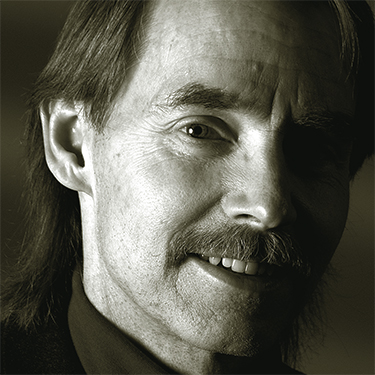 The students of Douglas Black climb mountains. Literally. At least once a term, Black takes his students hiking in the Cascades, because, in his opinion, everyone should do it at least once. “It floors me that people live here who have never been over there. On the other hand, there are always a couple of students who have made it a part of their life,” he says.
The students of Douglas Black climb mountains. Literally. At least once a term, Black takes his students hiking in the Cascades, because, in his opinion, everyone should do it at least once. “It floors me that people live here who have never been over there. On the other hand, there are always a couple of students who have made it a part of their life,” he says.
That’s just one of the many ways that Black creates a memorable experience for his pharmacy students, who appreciate the teacher’s availability and flexibility, and are even working to create the Douglas Black Endowed Pharm.D. Award in his honor. It will be given to a student who exemplifies Black’s work ethic, passion and dedication to his field.
“I have never seen a professor take teaching so personally,” says Tom Gilginas, ’06, a pharmacy graduate. “He frequently took student feedback and adjusted his teaching style immediately.”
Black has had his share of challenges in learning how to reach his students. “I don’t think I had any idea [in the beginning] how difficult it is to be effective. It really isn’t about standing up in front of a lecture hall and talking.” Where once Black spent 90 percent of his time preparing materials he thought conveyed the most important ideas to his students, today he finds it more effective to devote more time to thinking about his students’ perspectives. “I think about the audience,” he says. “If I can’t communicate effectively, it doesn’t matter how much I’ve prepared the materials.”
Black’s passion for his work is evident; after all, not many people can describe infectious diseases as “enthralling” and “thrilling” as Black does. Staying on top of his specialty, however, can be as tricky as the mountains Black loves to scale. “Medicine changes so fast. It’s hard year after year to read everything new that comes out.”
Meanwhile, Black is preparing to add to the body of that hard-to-keep-up-with information on infectious diseases. Though he laughingly admits that “the world doesn’t need another book on antibiotics,” he will soon be getting at least some of his expertise down on paper, in the form of a regular column in his department’s monthly newsletter: “It’s time to start writing this stuff down.”
As for personal goals, he and a former student, who has been climbing with him since the late 1990s, are hoping to scale Mount McKinley within the next two years.
His teaching goals are far more down-to-earth. “I don’t have any grand ideas about teaching anymore,” says the award-winner. “I get on the same level as students, don’t like the ‘Dr. Black’ stuff, don’t have office hours—they can come in whenever I’m there.”
Lauro Flores
Professor and Chair, Department of American Ethnic Studies
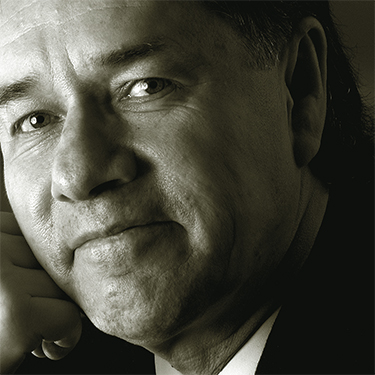 It’s no small feat to guide a strong ethnic studies program in a city not always known for its ethnic diversity. But Lauro Flores, in his second year as chair of the Department of American Ethnic Studies, is poised to do just that over the next few years. “We have to take it to the next level. I think we are well-positioned to become a leader in the region as well as nationally in this area,” he says.
It’s no small feat to guide a strong ethnic studies program in a city not always known for its ethnic diversity. But Lauro Flores, in his second year as chair of the Department of American Ethnic Studies, is poised to do just that over the next few years. “We have to take it to the next level. I think we are well-positioned to become a leader in the region as well as nationally in this area,” he says.
Flores has been a professor of Latin American and Chicano literature at the UW since 1981, with stints at Stanford and UCLA. He teaches mostly upper-division classes using themes and issues in contemporary Latin American and Chicano literature. “I’m very historically minded,” says Flores. “I try to frame the classes beginning with the roots of what we call contemporary literature.”
Flores must strike a balance in his classes of 20–30 students, where both graduates and undergraduates often coexist. “You have to find a level in which you are not boring the grad students and not going over the heads of the undergrads,” he says, so he keeps lessons lively. “I lecture for the first two sessions; after that I try to make it an interactive experience.” He eventually divides students into groups that lead discussions with Flores as a participant.
He also takes care to understand the individual needs of his students, saying, “More than half of the students I have work either part- or full-time.”
The students themselves give him high praise for his efforts, both as a teacher and mentor. “He has been tremendously effective in motivating and encouraging underrepresented and educationally/economically disadvantaged students, like myself, to consider graduate education, particularly doctoral study, as a realistic option,” says Gabriel E. Gallardo, ’89, ’00, who is now the assistant vice president for the Office of Minority Affairs and Diversity. He adds that many of the students Flores has advised over the years have gone on to prestigious internships, doctoral programs and more.
“One of his most salient talents lies in his communication skills in the classroom, a communication that cut across gender, class, race and sexuality,” says Gabriella Gutierrez y Muhs, a former student who is now an assistant professor at Seattle University.
Outside of the classroom, Flores is notable for his work to promote Latino and Chicano art in the Pacific Northwest; his grants include awards from the Rockefeller Foundation, the Paul G. Allen Foundation for the Arts and the Washington State Arts Commission, among many others.
In his remaining three years as chair of the American ethnic studies department, he hopes to create a graduate studies program as well as to strengthen the African American studies department, which has suffered from faculty losses.
According to his former students, Flores is certainly the teacher most equipped to accomplish these things. Says Gutierrez y Muhs, “Dr. Flores could talk to a child, a beggar or a king.”
David Goldstein
Lecturer, Interdisciplinary Arts and Sciences, UW Bothell
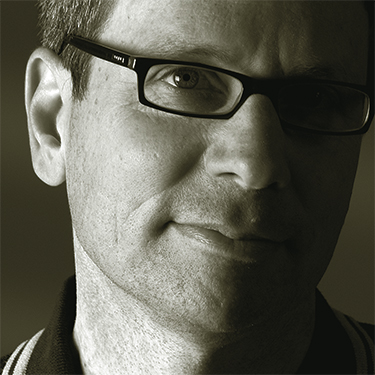 If there’s one thing David Goldstein wants his students to know, it’s that he’s not the expert in his classes—at least, he’s not the only one.
If there’s one thing David Goldstein wants his students to know, it’s that he’s not the expert in his classes—at least, he’s not the only one.
“I think college students are smart. They have their own life experiences they can bring to the classroom,” says the lecturer. “I’m one of an entire learning community.”
Influenced by Brazilian education reformer Paolo Freire, who Goldstein says puts forth the idea that “students can be teachers and teachers can be students,” Goldstein makes all of his classes discussion-based, where the discussion includes everyone. “I feel like they haven’t gotten this far knowing nothing; they’re smart people with rich, rich life experiences. I draw on that.”
Goldstein’s respectfulness towards his students has earned him a number of enthusiastic thank-you notes over the years: “I really enjoyed your teaching style and learned so much in your classes. All that you do for students is noticed and appreciated,” writes one student.
“Goldstein is the sharpest, brightest professor I know, and always enters the classroom with lighthearted enthusiasm and a sincere interest in each and every one of his students,” says another.
It wasn’t until he went to college at UC-Riverside that the teacher realized a part of his own life experience had been missing: ethnic diversity. “ I grew up in Orange County in the 1970s; a wonderful place to grow up, but not particularly diverse,” he says. Once in college, “I learned how much I had been missing in terms of life in America. When I was an English major, we were studying mostly white British authors. When I discovered American studies, I discovered a place where I can study this. The subject area of ethnic studies was [also] completing a part that was missing.”
The problem-based, rather than subject-based, approach of his department, Interdisciplinary Arts and Sciences, dovetails nicely with Goldstein’s flexible teaching style.
Frequently the problems addressed are controversial, such as the ways that the media can promote violence. Goldstein found this out when he showed a class a science fiction film that caused one student to walk out. In the end, he and the student reached a compromise, but finding a balance between the classroom as an intellectual place and a place filled with emotional people has been a learning process. “I have been taught that a classroom is a place where we are dispassionate and intellectual,” he says. “But the older I get the more I see that we can’t separate the two [emotion and intellect].”
That sense of constant work, if nothing else, is one thing Goldstein hopes his students can take away from his classes. “I’ve been showing them how to [learn] themselves. They have a limited time with me, but a lifetime with friends, family and the world. I hope that I set them up for a lifetime of learning.”
G. Kent Nelson
Senior Lecturer, Milgard School of Business, UW Tacoma
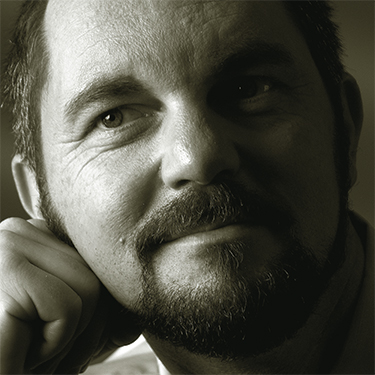 G. Kent Nelson, ’89, ’94, doesn’t care if his students become experts in the subjects he teaches. He’d rather they master a few broad principles for better living.
G. Kent Nelson, ’89, ’94, doesn’t care if his students become experts in the subjects he teaches. He’d rather they master a few broad principles for better living.
“The most important thing for me, as an instructor, is to emphasize whole-person learning,” he says. “I want to help my students become better human beings. If I do that, they’ll be able to go out into the business world, pursue whatever they choose and be successful.”
Nelson honed his skills as an instructor in graduate school at the UW, where he earned his M.A. and Ph.D. degrees in speech communication. Nelson teaches leadership and business communication courses in the management concentration at UWT’s Milgard School of Business.
In the classroom, Nelson prefers to teach big ideas, an approach he believes helps students understand themselves and the world around them and will ultimately make them better businesspeople.
“Given the choice between my students leaving my class with acute understanding of the course’s particular subject matter, or leaving my class as better human beings who are motivated to contribute to the well-being of others and the greater good, I will always choose the latter,” he says.
His class assignments reflect his goals. In his Dynamics of Leadership class, Nelson asks each student to develop a model for their own pursuit of “personal mastery,” and a plan to improve current and ongoing leadership. In his Interpersonal Skills course, student assignments generate awareness of personal communication patterns that can lead to improvement in personal relationships as well as business ones.
Nelson enjoys interactive classroom discussions and recently started to use new technology in a quest to keep students engaged. In addition to providing students with written feedback on their work, he records oral feedback on a digital audio recorder and e-mails it to his students. It’s a method that allows him to provide tailored, personal feedback with all the nuances associated with a human voice.
Nelson also serves as an instructional coach for other UW Tacoma faculty. He conducts workshops on teaching and learning and observes classes in order to help other faculty members sharpen their teaching skills.
“As a senior lecturer, I believe it’s one of my jobs to promote a rich teaching and learning environment,” he says. “If I can help another teacher improve, that teacher becomes more effective with students. The impact is exponential.”
Nelson credits his success at UW Tacoma to the quality of his graduate education at the UW. “I believe this award is a compliment to my education at UW Seattle. It is a dream come true to work for this University.”
Matthew Sparke
Professor, Dept. of Geography and Jackson School of International Studies
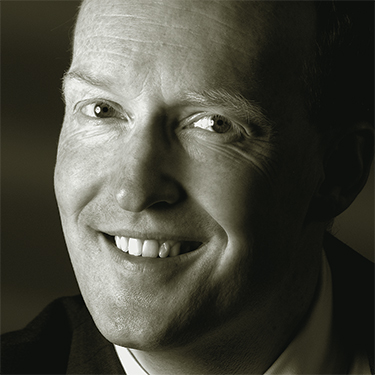 In 1999, out of the chaos of the World Trade Organization protest, Matthew Sparke seized an educational opportunity. He says, “People were crying out for some explanation as to why there was so much discontent with globalization.” Sparke had just begun teaching at the UW in 1996, and the protests made him realize that there was a gap in the UW curriculum that the geography professor was uniquely qualified to bridge.
In 1999, out of the chaos of the World Trade Organization protest, Matthew Sparke seized an educational opportunity. He says, “People were crying out for some explanation as to why there was so much discontent with globalization.” Sparke had just begun teaching at the UW in 1996, and the protests made him realize that there was a gap in the UW curriculum that the geography professor was uniquely qualified to bridge.
The next year he created a globalization curriculum, aided by the National Science Foundation CAREER Award, a grant that allowed him to combine research and teaching to explore “globalization and the transnational development of civil society.”
Seven years later, Sparke’s roster of upper- and lower-division classes on globalization has made an impression on students and colleagues alike. “He is distinguished by his ability to take complex theoretical arguments and make them compelling to students,” says Geography Professor Victoria Lawson. “Sparke has visited my 400-level development theory course on a number of occasions…my students begged me to bring him back the following week.”
Sparke’s intro-level globalization course gets raves from students who say their professor’s teaching style and material have pushed them to think differently about the world around them (and even inspired a few to pursue political activism). Whitney Bosel, a former Geography 123 student, says, “I think almost everyone in that big room liked going to class and hearing [Sparke] lecture. His passion was infectious, and he really seemed to want to make sure that students understood the material.”
Among many challenges, it’s always particularly difficult to find ways to make a large lecture class, such as Geography 123, more personal, says Sparke, who lets his own undergrad experience at the University of Oxford instruct him somewhat. “One of the things I did like [about my department] was it gave me a chance to meet professors; that’s something that’s hard to replicate in a large university.” Sparke tries to make himself as available as he can, plying students with weekly coffee klatches and learning their many names.
In his lessons, he strives to avoid the tedious podium lectures he remembers listening to as an undergraduate. “I speak to students’ real interests and the world they’re preparing to live in, try to connect topics to things they care about—where money goes, who makes the clothes they wear, where their food comes from.” He also appreciates the range of his students’ intellectual backgrounds, adding, “Never underestimate what students can learn and never underestimate what they can know.”
For Sparke the greatest reward is seeing his efforts come together. “When I see students getting switched on to connecting their learning to living in their world and making their world, that makes it all worthwhile.”
“I do believe teaching works best at the UW when we as teachers understand we’re in it together, when we realize that the lessons we give are building on each other.”
Terry Swanson
Senior Lecturer, Department of Earth and Space Sciences
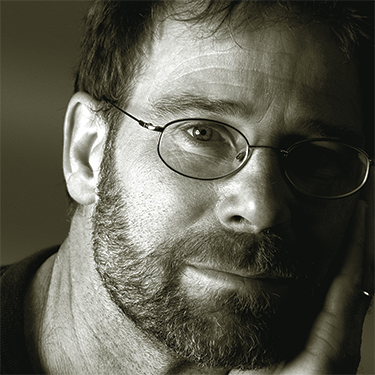 Geology has been Terry Swanson’s passion since grade school. “I was brought up in Canadian schools. A large component was geography, which includes landform analysis. I had excellent teachers [and] I was intrigued by landscapes and maps,” he says.
Geology has been Terry Swanson’s passion since grade school. “I was brought up in Canadian schools. A large component was geography, which includes landform analysis. I had excellent teachers [and] I was intrigued by landscapes and maps,” he says.
It was only natural, then, that the Canadian would find his way to the UW in 1988, where he sought the best program in his field to work as a teaching and research assistant, and the best mentor—Steve Porter, now an emeritus professor who specializes in glacial and quaternary geology.
Following in the footsteps of his own excellent teachers, Swanson draws hundreds of students, majors and non-majors alike, each year to his full roster of classes—fall, winter and spring quarters saw the notoriously busy Swanson teaching up to four classes at a time.
Field trips and interactive classes are hallmarks of these courses. The trips are an integral part of a geology education, Swanson points out, since it is a field science. But the excursions also make it possible for him get to know his students, particularly in lecture classes where 400–600 is an average load.
Inside the classroom, Swanson roams as he speaks, frequently calling on students who, if they answer a question correctly, will earn the class a bonus point. “Students have attention spans of about 15 minutes—not just this generation, mine was that way as well,” he says, so activities like this help keep them engaged. He also asks students to give two- to three-minute lectures to the class on a topic within a theme already being discussed.
Recently, Swanson has introduced debate to the mix of learning aids, where students have the opportunity to discuss current events as they apply to geology, such as Arctic National Wildlife Refuge drilling.
“The most memorable moments of taking classes from Terry are his field trips,” says student Patricia Terhune-Inverso. “These adventures range from being stuck in the snow on a glacial moraine in eastern Washington to wandering through the woods on Whidbey Island to find an elusive glacial erratic. With his enthusiasm, students follow him anywhere, even to a wet, muddy, smelly marsh wearing only street shoes in order to dig up a tsunami deposit.”
And like layers of rock, Swanson’s influence spans generations—one of the most touching letters the teacher received was from a former student who told him that she has wanted her son to take his class while he was at the UW. Swanson enthuses, “They’re like my own children.”
Crispin Thurlow
Assistant Professor, Department of Communication
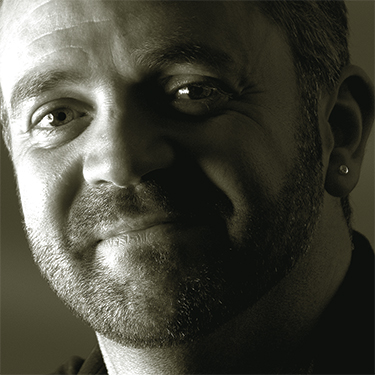 “I come from a long line of teachers and preachers,” laughs Crispin Thurlow, eloquently explaining his career as befits a professor of communications. “I think they’re both vocations in the truest sense, a calling. Both rely on an interesting combination of theatrics and conviction.”
“I come from a long line of teachers and preachers,” laughs Crispin Thurlow, eloquently explaining his career as befits a professor of communications. “I think they’re both vocations in the truest sense, a calling. Both rely on an interesting combination of theatrics and conviction.”
Conviction he has down pat—he’s a firm believer that “communication is one of the most important things,” focusing his work on intercultural communication and global tourism. He also knows a thing or two about theatrics—he trained as an actor in London for two years. Fortunately for the teaching community, “I didn’t like acting that much.”
Theater training has made him unself-conscious enough to “run around a lecture theater [or] walk like a giraffe” to make a point. “We live in an age where there’s lots of talk about podcasting and virtual learning, but none of that has the impact of teaching in person. The challenge is to entertain with energy and magic.”
While students agree he is entertaining, Thurlow has succeeded in the more important endeavor to impart knowledge. “I appreciate his willingness to work with students to help them achieve their personal educational goals by making himself available,” says undergraduate Alice Lyden. “His lectures are amazingly thought-provoking, and he delivers them with a distinct sense of respect for his students.”
Encouraging a sense of community is crucial to Thurlow, who looks to teacher and activist bell hooks’ philosophy for inspiration: “It’s an act of trust when we come together,” he says about the classroom and the lives it connects. “I’m also learning from students and I’m learning from colleagues, who are my other community.”
One of the practical ways Thurlow attempts to get to know individuals in his introductory class of about 450 students is to write letters to the top 20 at the end of every course congratulating them. “What I’m particularly touched by are the letters I get back,” he says. “Having that moment of connection is very special, when we’ve managed to transcend the scale of the education that we’re doing here.
Thurlow balances his teaching with research—currently he is exploring class in the context of tourism with the help of a University research grant—but admits the split can be a difficult one at times. “I’m evaluated primarily on the basis of my research,” he says, but, “I work extra hard to get the teaching right.”
Honor roll: The UW salutes 14 individuals and two units
The University will honor an additional 14 individuals and two units as part of its annual awards program, which recognizes outstanding performance in teaching, mentoring, public service and staff support. The award winners will be celebrated at a special Recognition Ceremony, held at 3:30 p.m. Thursday, June 7, in Meany Hall, with a reception to follow. Alumni and the general public are welcome to attend. More information on all these award winners is available at uweek.org.
Excellence in Teaching Award for graduate teaching assistants: Jerusha T. Achterberg, anthropology, and Alex Coverdill, biology.
Marsha L. Landolt Distinguished Graduate Mentor Award for faculty members who have made outstanding contributions to the education of graduate students: Rajendra K. Bordia, materials science and engineering.
Distinguished Staff Awards: Marne Faber, Harborview Medical Center; Deborah Flores, engineering; Elaine Franks, psychology; Pamela Robenolt, student-athlete academic services; and Cynthia St. Clair, music.
Outstanding Public Service Award for a faculty or staff member with extensive local and/or national and international service: Erasmo Gamboa, American ethnic studies.
S. Sterling Munro Public Service Teaching Award for faculty demonstrating leadership in community-based instruction: J. Carey Jackson, medicine.
James D. Clowes Award for the Advancement of Learning Communities for a faculty or staff member who transforms undergraduate learning by creating learning communities: James N. Gregory, history.
Brotman Award for Instructional Excellence, which recognizes collaboration that improves the quality of undergraduate education: Program on the Environment and Multidisciplinary International Research Training Program in epidemiology.
David B. Thorud Leadership Award honoring faculty and staff who lead, serve, inspire and collaborate with impact that is beyond their regular responsibilities: Eve A. Riskin, electrical engineering; and Donald H. Wulff, Center for Instructional Development and Research.
Distinguished Contributions to Lifelong Learning Award for faculty who have taught for at least two years in non-degree programs: Jan Spyridakis, technical communication and engineering.